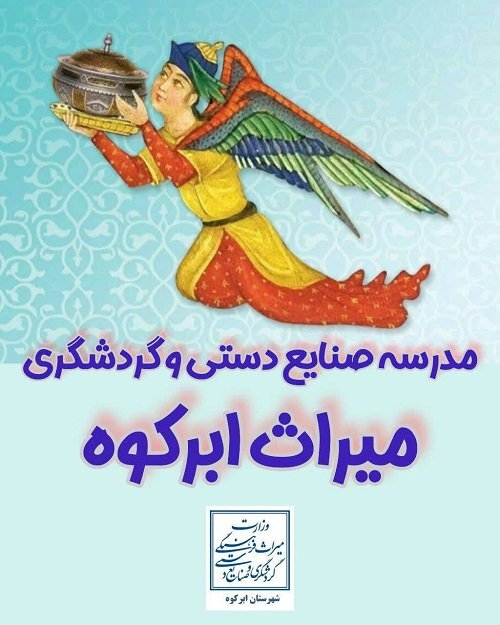Tourism, handicrafts school to open in Abarkuh

TEHRAN – A new school dedicated to tourism and handicrafts is scheduled to open in the ancient city of Abarkuh, central Yazd province, a local tourism chief has said.
The launch of such a school aims to promote handicrafts and traditional arts, as well as tourism, both of which are essential to the economic prosperity of the city, Javad Adel explained on Sunday.
In addition to handicrafts workshops, the school plans to provide foreign language training, hotel management and tourist attraction classes in the field of tourism, the official added.
In July 2017, the historical structure of the city of Yazd was named a UNESCO World Heritage. Wedged between the northern Dasht-e Kavir and the southern Dasht-e Lut on a flat plain, the oasis city enjoys a very harmonious public-religious architecture that dates from different eras.
Yazd is usually referred to as a delightful place to stay, or a “don't miss” destination by almost all of its visitors. It teems with mud-brick houses that are equipped with innovative badgirs (wind catchers), atmospheric alleyways, and many Islamic and Iranian monuments that shape its eye-catching city landscape.
It is a living testimony to the intelligent use of limited available resources in the desert for survival. Water is brought to the city by the qanat system. Each district of the city is built on a qanat and has a communal center.
The use of earth in buildings includes walls and roofs through the construction of vaults and domes. Houses are built with courtyards below ground level, serving underground areas. Wind catchers, courtyards, and thick earthen walls create a pleasant microclimate.
Partially covered alleyways, together with streets, public squares, and courtyards, contribute to a pleasant urban quality. The city escaped the modernization trends that destroyed many traditional earthen cities.
It survives today with its traditional districts, the qanat system, traditional houses, bazaars, hammams, water cisterns, mosques, synagogues, Zoroastrian temples, and the historic garden of Dolat-Abad. The city enjoys the peaceful coexistence of three religions: Islam, Judaism, and Zoroastrianism.
ABU/AM
Leave a Comment